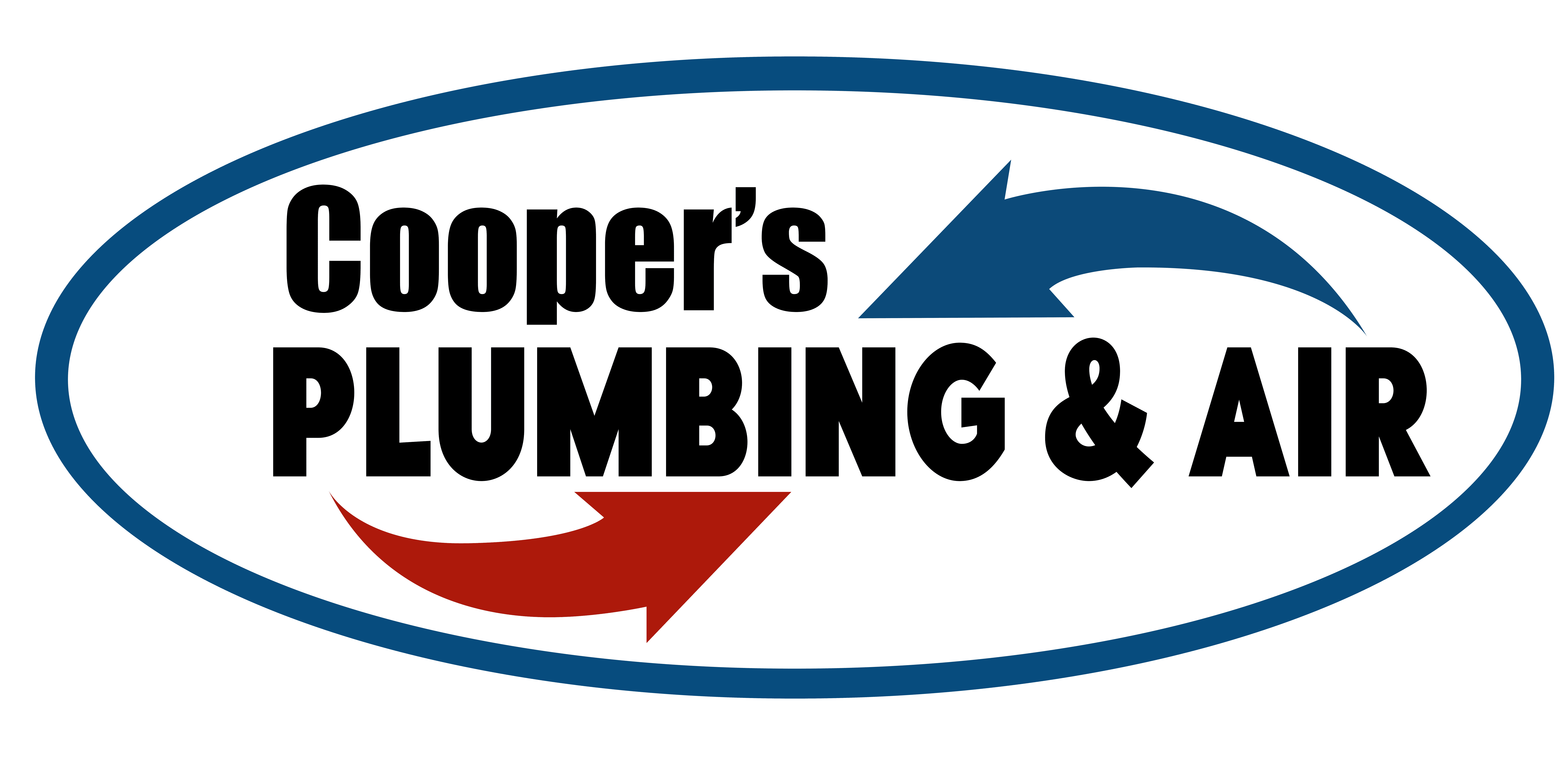
A home’s air quality is essential to the health of its occupants. Spending time in spaces with airborne pollutants quickly leads to increased allergies, asthma attacks, and general fatigue.
In the United States, the government has set guidelines for safe levels of air contaminants to prevent health problems. Since most people spend around 90% of their time in indoor environments, good quality air is vital for your wellness and comfort.
Both the Environmental Protection Agency (EPA) and the Occupational Safety and Health Agency (OSHA) have maximum safety standards on the importance of indoor air quality (IAQ). Learn more about these topics on their websites and find out whether your family’s health and comfort might be at risk.
It’s impossible to control the quality of the air you breathe outside, but providing pure air for indoor spaces is easy with the professionals at Cooper’s Plumbing & Air. Here are five considerations:
-
Identify Pollution Sources
There are plenty of hazardous contaminants that cause health concerns, and many of these are airborne. The most common pollutant sources are:
- Tobacco smoke
- Carbon monoxide (CO) gas
- Polycyclic aromatic hydrocarbons
- Volatile organic compounds
- Dust particles and dust mites
- Radon gas from building materials and leaching from the soil
The long-term health effects of these pollutants vary, depending on the pollutant concentrations. Low concentrations of CO are fatal, while other volatile organic compounds lead to neurological problems.
Even common sources of indoor air pollution may lead to irritation of the eyes, nose, and throat, increased instances of asthma, and the development of allergies. Radon exposure leads to an increased risk of lung cancer and is potentially more dangerous than tobacco smoke.
While commercial buildings have a health and safety code, the situation is less certain within residential homes. Many homeowners have started taking matters into their own hands, finding ways to measure pollutant levels, implement source control, and tackle the air quality problem for the sake of the home’s residents.
If you value your health and the health of your loved ones, identify air pollutants in your home or commercial building, and find ways to address any potential air quality problems. The type of pollutants you’re exposed to may also help you identify the best way to remove these hazards.
-
2. Change HVAC Filters
When it comes to poor indoor air quality, HVAC filters are a common culprit. Most people forget about their home HVAC system until it breaks, but regular maintenance is essential.
The purpose of your air filters is to remove dust particles and other allergens from the system before the air reaches your lungs. Indoor air is far safer when your system removes these contaminants regularly.
Clogged air filters are also responsible for many other HVAC issues. Any heating, cooling, or purification unit needs reliable airflow to operate effectively. A clogged filter will make pulling air through the unit more difficult, leading to fluctuations in temperature, as well as less efficient cooling and heating systems.
Replacing your filters regularly will ensure a longer air conditioning unit lifespan and fewer pollutants in your home or office.
-
Make Sure You Have Proper Ventilation
Ventilation refers to the airflow in your home, venting pollutants away from your living areas. Poor ventilation leads to endless health problems, including carbon monoxide accumulation and drastically lower air quality.
Traditional methods of home ventilation include opening up windows to bring in fresh air or investing in indoor plants. However, as temperatures rise, you may want to consider an energy recovery ventilator that circulates indoor and outdoor air while maintaining your desired temperature inside.
If you’re unsure about the quality of your HVAC ventilation, visit our website or call one of the friendly professionals at Cooper’s Plumbing & Air. We will conduct a thorough evaluation of your air conditioning system and identify potential issues for poor airflow within the home.
-
Control Humidity
Humidity is a major factor in indoor air quality (IAQ) and contributes significantly to comfort and wellbeing.
High humidity levels are uncomfortable and lead to unwanted organic growth. Mold refers to any type of fungus that grows on decaying organic matter, and leaving it unchecked in your home opens your loved ones up to a wide array of negative health effects.
Even harmless mold species lead to irritated lungs, increased allergies, and difficulty breathing. On the other side of the spectrum, black mold may lead to heart disease and liver failure—prolonged exposure can even be fatal.
Too little humidity is also unhealthy in drier regions. It may lead to dry and chapped skin, a scratchy throat, and a feeling of general malaise. Too little humidity can actually keep you up at night, According to the National Sleep Foundation . However, striking a balance for humidity can be tricky. If you already have an indoor air conditioning system, it is easy to install a whole-home humidity solution that will reduce indoor air pollution and simultaneously control the humidity in your home.
-
Install an Air Purifier or Upgrade Your Existing One
Home air purifiers are excellent tools for improving indoor air quality by removing air pollutants. However, there isn’t a single method of air purification to remove all sources of pollution. In many cases, you’ll have to install a combination to cover all air sources.
For instance, a mechanical filter will remove dust and particles but let through VOCs, gas, and germs that cause poor quality air inside. It’s why we recommend more advanced filters, such as UV and activated charcoal filters, to improve your indoor air quality further.
Activated charcoal filters remove bad odors, volatile organic compounds, and other pollutants, while UV filters sterilize the air and remove germs from the area.
Get in Touch with Your Resident HVAC Experts
As Tallahassee’s premier HVAC professionals, Cooper’s Plumbing & Air takes indoor air quality seriously. We understand that our clients’ homes are safe spaces that need to be comfortable and healthy. Our reliable team also works with commercial ventures to ensure that the IAQ protocols are up to code.
Providing clients with perfect indoor air quality is our passion, and we pride ourselves on delivering excellent results every time. If you have any questions on the topic of indoor air quality, or an issue with your existing HVAC system in the Tallahassee area, don’t hesitate to contact us.
